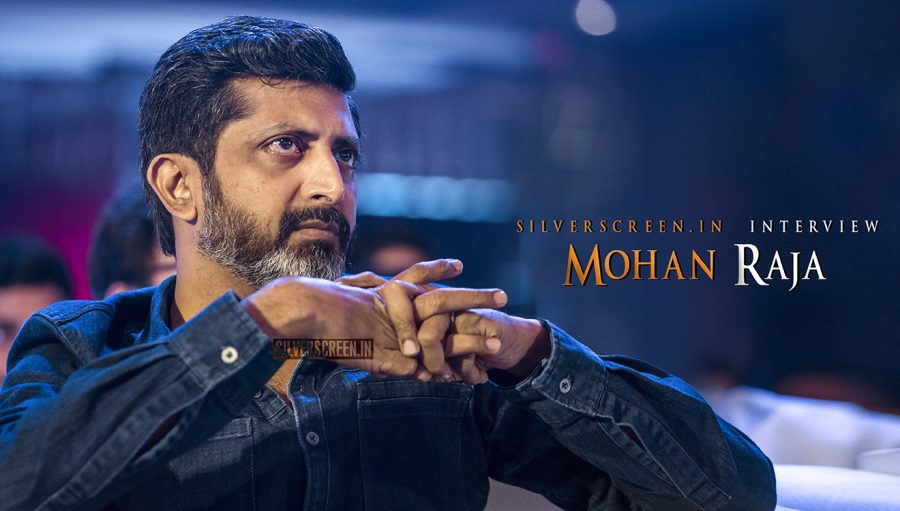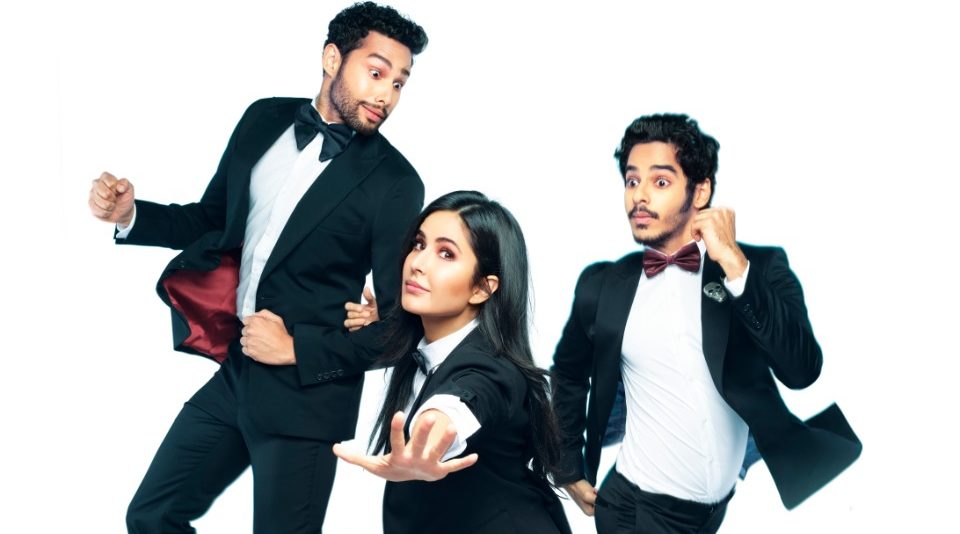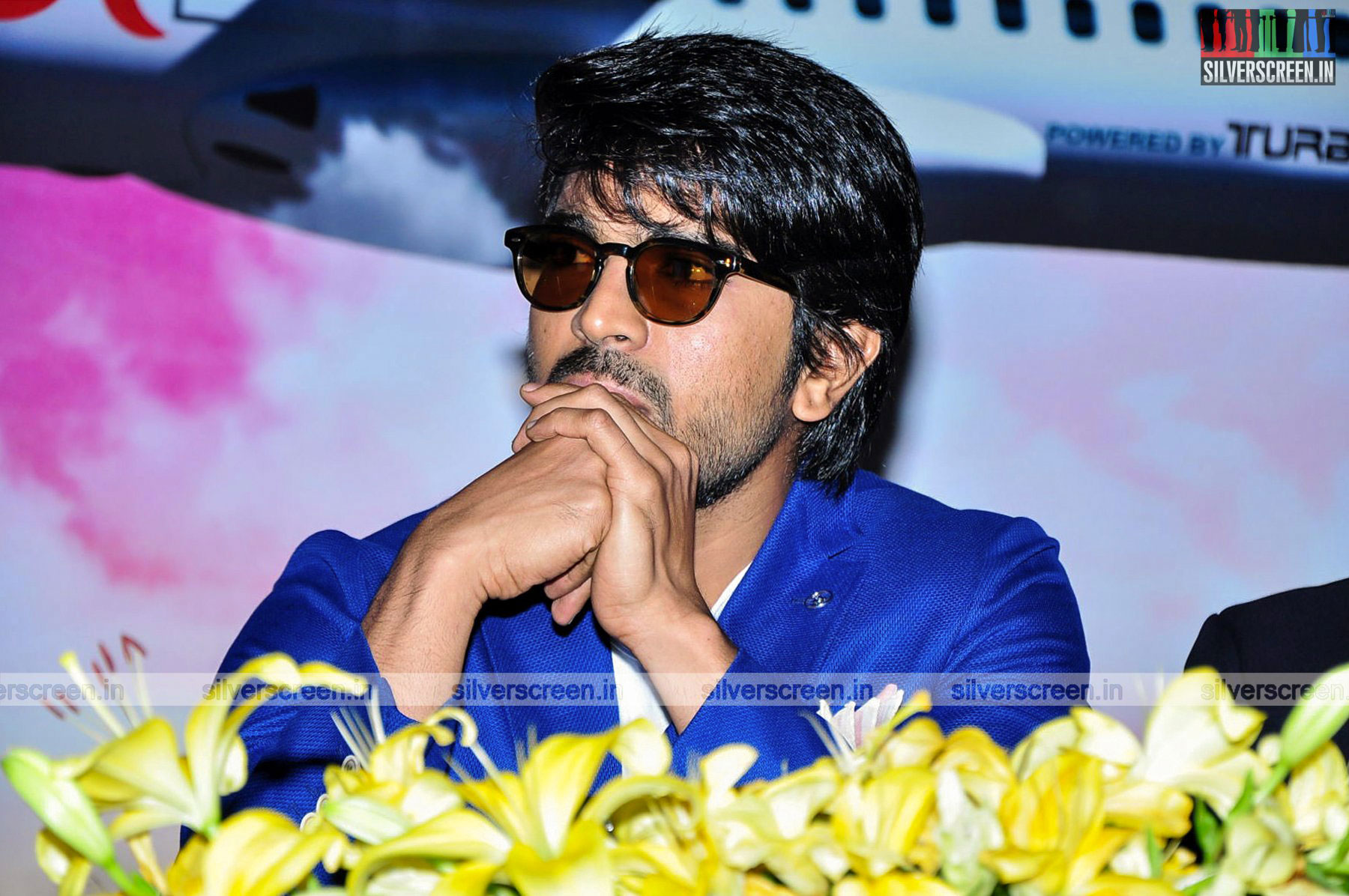Director Mohan Raja is not bogged down by tags; be it the one he earned thanks to his film with brother ‘Jayam’ Ravi, or the one that was foisted on him when he made remakes, Raja treats them both with equanimity
When Raja was in Class 4 or 5, he was pulled up often by teachers for disturbing class. He would sit along with a group of classmates at Jawahar Vidyalaya, Ashok Nagar, and narrate the story of a film, the preview of which he would have seen a day or two before release. The eldest son of ‘Editor’ Mohan was fascinated by the thought of narrating stories.
Which is why, years later, when he began his career making remakes, he never let the tags that piled on to his name affect him. “Like I’ve always said, I made peace with what I was doing, because my father told me that it is better to make a ‘remake’ than a ‘freemake’. I believe that a remake adds value to a story. You give credit where it is due and respect your audience. In my case, I knew that only victory speaks, but was also taught that it must be achieved the right way. I ended up remaking films that I truly believed in at that point of my life.”
Raja had not assisted any director before he made the movie whose title Jayam is still the prefix to his brother Ravi’s name. Raja became Mohan Raja with Thani Oruvan, in tribute to the many things his father continues to teach him. After all, Editor Mohan was a path-breaking creator. He moved from Madurai to then Andhra Pradesh and ended up making movies with the big stars, in the process adding screenplay writing and producing to his forte of editing.
*****
The interview takes place at 24AM Studio’s T Nagar office; an assistant comes by to discuss the next day’s promotion material in Tamizh. Raja knows his ல and ள, and makes the necessary corrections to the term ‘Adhirvalai Ezhuppum’. His level of commitment to his product is immense, but he will have it no other way. “I have always questioned myself multiple times to rule out gaps in the story-line and to fill in the blanks. For years, I felt it was something I had to hide, till I discovered the concept of ‘Emotional Intelligence’. Even today, in the case of an original script, the kernel of the story is from me. I flesh it out later with help from writer-duo Subha (of late) and my team. I like to sort things out before I head for shooting.”
This ability to thrash out ideas helped the movies he made. While most look like even the framing was the same as the original, Raja brought in fleeting, delicious additions, customising the film in the way he saw fit, And so, in Unakkum Enakkum, a two-second shot of the brother (played by Prabhu) mixing the clay to shape a horse for his sister, was added. In the Telugu original Nuvvostanante Nenoddantana, it was a store-bought horse. “Now, this is a horse that appears through the movie. I felt it would be truly special if it were handmade by the brother.” Likewise, in M Kumaran, S/o Mahalakshmi, he introduced a montage of a single mother raising her child, and a scene in college where she explains why her initial alone would do for him. “I had to place in context the hero’s love for his mother, and his near-hatred for the father,” he says.
This attention to detail and Raja’s focus on films that struck a chord with the audience helped cement his fan base. “Some of the films were blockbusters,” he admits in the same tone that he uses to speak of disappointments. “In fact, the manager of Sathyam would tell me that most of the advance booking was by ladies’ groups. The people on whom I placed my trust on in the beginning of my career, my audience, was with me constantly,” he smiles.
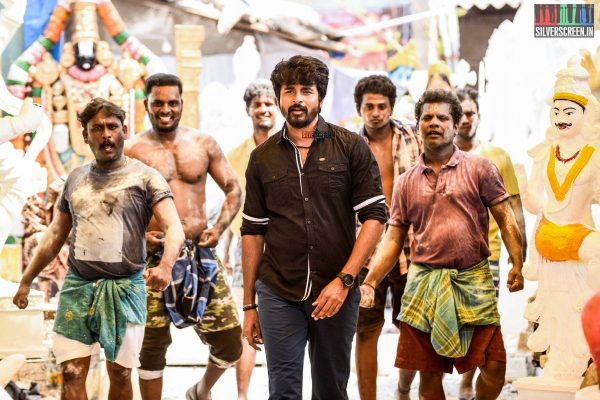
And, though Raja’s films have made money and continue to even after he started making ‘direct’ films such as Velayudham (not written by him), Thani Oruvan and now, Velaikkaran, pride is one emotion that escapes Raja. Is it the way he was raised? “Possibly,” he says. “My father used to take me along with him to work, and though it meant getting to meet the stars, I knew that it was ultimately work. My mother, probably, will take the credit for making Ravi and I what we are. She’s a double MA in English and Tamil and chose to raise us well. I’m always amazed by how she treats everyone alike. She would find something to talk to the uneducated aunty in the neighbourhood as also an academic. So, if people think Ravi and I have turned out well, it’s because of her influence.”
That influence reflects in how Raja works too. When he discusses scripts at work, he gets suggestions from everyone, including the boy who serves coffee. “Everyone who is a part of the industry is in some way a wannabe director. And so, all opinions matter. And, I like the perspective I get from different people.”
*****
When Raja speaks of work, there’s an eager excitement in his voice. But, it takes about 15 minutes of conversation before he gets comfortable speaking from his heart. “I’ve always been deeply introverted. I take a long time to open up. But, family and some friends see the real me,” he says. And then, he speaks of an incident from back when he was in his late teens or 20s when he went on a train journey with his friends. “It was so complete, so perfect, that I felt that in this moment, if something were to happen, I’d leave the world a happy person.”
The train journey was without incident, and the world finally saw the activist in Raja speak through Thani Oruvan and Velaikkaran. “I was just biding my time. Many wrongly refer to Velaikkaran as my second film after Thani Oruvan, forgetting the rest, but that’s not fair at all. The remakes I chose suited me, my mind frame then…”
Considering Raja loved narrating stories even as a child, does he consider himself a better writer or storyteller? “While both are vital, I’m not very satisfied with what I do. I personally love the magic that unfolds when a story is being narrated. I love the ‘how’ in telling a story. And, because I don’t mind sharing my work and recognition with someone, I work with writers. I like that there’s a fresh mind working with you, someone who knows the form. But, I will give myself the credit of being able to see things differently, be it the cop trying to crack a case while still studying or his innate need to hunt down an enemy who has not had any confrontation with him.”
What helps him in this process is the team he’s put together. “I’m all for getting criticised by them, if it means the product makes sense.”
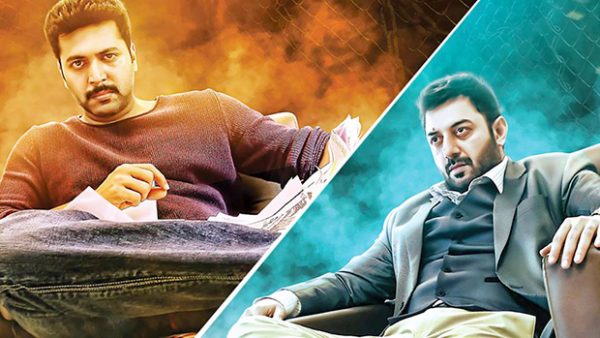
But, one thing he will not compromise on is vision. “I can work around everything else, but I have to stick to my vision even if it means explaining myself numerous times till my team sees it. For instance, in Thani Oruvan, the overriding emotion was obsession. It was not brought on by fear, or hatred, vengeance or anger. Likewise, in my head, Siddharth Abhimanyu’s character was invincible. I always begin by giving my characters a particular trait, and work around it.”
Raja has achieved what would certainly be classified as ‘superstardom’ among directors. But, he’s not quite willing to see himself there. “You know what excites me? A film like Amadeus. You see, my father brought me up on a diet of good Hollywood movies, and in my head, progress towards the destiny he imagined for me is quite slow. For instance, we may celebrate a Peepli Live. But, Hollywood tackled the subject in 1951 with the Kirk Douglas film Ace In A Hole! There’s a lot of catching up to do,” he says.
Would that also include making a movie without songs? “I’ll welcome a song-less film, but a creator always wonders if the audience must see what he wants to show them or if he must create what the audience wants. Sometimes, you might strike gold, and believe you’re invincible. You need to pull yourself back then, start afresh, reinvent… and so, yes, someday, I might make a movie without songs.”
And then, the director in him travels back in time to the ’80s, when he entered his teens. “It was a heady period. We had creators such as Balachander, Mahendran, Balu Mahendra, Bharathiraja…I deeply admired their ability to tell a story, with the stars in the background. Much later, when a film was announced, I would put on my ‘wondering’ cap and imagine what it would be like. It was a time of great fun. That said, many get me wrong when I say that the trend of heroism on screen destroyed good stories. These films did well, and so there was a new cycle of making the same kind of movies again and again. New directors followed the same path, pandering to an audience that revered the stars.”
Being trained by Editor Mohan has also resulted in Raja editing films in his head. So, while he may shoot extra, he retains just what he wants. “I see it might upset some. Nayantara felt that way in Thani Oruvan, but saw why I did what I did. Recently, Sneha felt her role had been reduced in Velaikkaran. I might have shot a little extra with her. I retained all I had to; she is the pivot around which the film revolves. She brings about the change. I did apologise to her, because she felt shortchanged.
*****
Of all collaborations the director has forged, the best one has been with a boy he’s loved since Raja was six years old. “At an emotional level, I need to be with Ravi. We used to have lots of fights growing up, but we always made up before it was time to say ‘Good night’. I used to dominate him once upon a time. We’ve been through everything together. Once, I’d gone with my father to Andhra for the making of a movie, and when I returned, this little boy, who looked up to me had grown taller than me. And, just like that, we became best friends. Among the moments of absolute pride I’ve felt is when Ravi did his Bharatanatyam arangetram.”
Ravi always speaks of the immense trust in Raja. Does that pressure get difficult to live up to? “See, I don’t consider pressure a negative thing. Anything that helps me write a good story and be more responsible towards work is a good thing. By now, I know that only one in a crore would get the opportunity I got, and I must make the best of it — even though I age twice during the making of a film. I lose family connections, I don’t get to spend as much time with my wife, I miss out on my children — my daughter’s 13 and son seven — growing up…”
*****
Recommended
Whenever he is plagued by these thoughs, Raja questions. Himself, his choices, the stories in his head… “It’s only through questions that you get clarity. And I can never sleep if a question is unanswered,” he says, and goes into flashback mode. Soon after Thani Oruvan released and the popularity of protagonist Mithran was overtaken by antagonist Siddharth Abhimanyu, Raja was deeply worried. “Did I create a character that impressed more than the righteous one? Everyone seemed to want to emulate Siddharth. I felt I had committed a grave mistake. I drove around aimlessly, till it struck me. When Nadiya’s character was killed in M Kumaran, everyone told me that was wrong. But, while they celebrated Siddharth, not one person asked me why he had to die. So, while they were enamoured by him, they knew what would happen with that kind of life. That day, I went home and slept.”
*****
The Mohan Raja interview is a Silverscreen exclusive.
